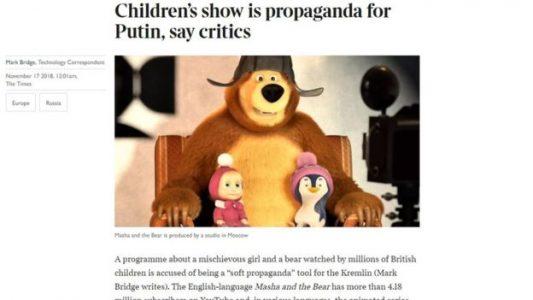
A new ISIS propaganda tool are cartoons for children
The sophisticated propaganda efforts of self-styled Islamic State group include a radio station, magazines, videos and photos – often depicting violent imagery. But earlier this year, there appeared to be a shift in the tone of the messaging from some supporters. Among the new methods of communication: cartoons.
Earlier this year, a channel on the messaging app Telegram – and a now-deactivated channel on YouTube – began releasing narrative animated stories which veered away from the brutal and shocking images that so-called Islamic State (IS) had previously been pushing.
One, specifically aimed at children, was titled The Ruler and the Brave and told the story of a country that had become disillusioned with its tyrant leader. The leader, the video explained, would lie to his subjects about “brave men” who dared to stand up to him. These “brave men” turn out to be IS militants.
Over the past two years, Islamic State group militants and their supporters have increasingly been facing restrictions imposed by social media platforms. Telegram, a messaging app which offers encryption, ensuring the privacy of users, has attempted to shut down suspected Islamic State channels in the past.
Telegram has 100 million active monthly users, and many of its groups are private. Because of the network’s security features, extremist material can be hard to identify. Violent photos and videos on bigger platforms such as Facebook and Twitter are generally removed within days.
Earlier this year cartoons which glorified Islamic State ideology began appearing on a pro-IS Telegram channel which remains active. The cartoons were also shared on YouTube in March, and remained on the platform until early this month – only being shut down after the BBC alerted YouTube.
While cartoons are less likely to be flagged up than violent photographs, Brendan Koerner, a contributing editor at Wired magazine, says that the use of cartoons may also be due to fewer videos and pictures being produced inside regions controlled by IS forces.
“(Their) ability to produce media content has been degraded due to their military setbacks,” he told BBC Trending, “They are now depending on supporters abroad (outside IS-held territory) to make their content.”
Aside from the cartoons, the members of the channel use the hashtag #SupportEtiquette, advising their supporters to adopt a softer tone when discussing IS ideology with potential new members. They urge followers to “softly preach to the ignorant and undecided.”
This approach is markedly different to IS’s usual imposition of its views and strict religious interpretations, and its ruthless punishment of those who disagree.
“They have to find new ways to recruit sympathisers and people willing to move,” Koerner says. “One part of that is that they have to set up this image that it is a functioning government, that it provides basic services and justice and that it is a utopia.”
The channel’s posts and the way its administrator is addressed by members of the group suggest the admin is female, and possibly Egyptian.
One post explains that one of the channel’s aims is to prove that “pious” women (presumably implying the administrator) enjoy high status in the eyes of the group.
The channel’s material also has an impact outside of Telegram. It has been promoted and praised by high-profile IS supporters online and has been used in publications produced by other prolific pro-IS online media groups.
YouTube suspended the channel spreading the pro-IS cartoons after the BBC flagged it up and sent Trending the following statement: “We take our role in combating the spread of extremist material very seriously. We act quickly to remove flagged content that incites violence and terminate accounts run by terrorist organisations”
Telegram has not responded to requests for comment. In a blog posted in March, a Telegram spokesman insisted the network was taking action against extremist content and blamed media outlets for exaggerating the impact of terrorism.
Source: BBC





